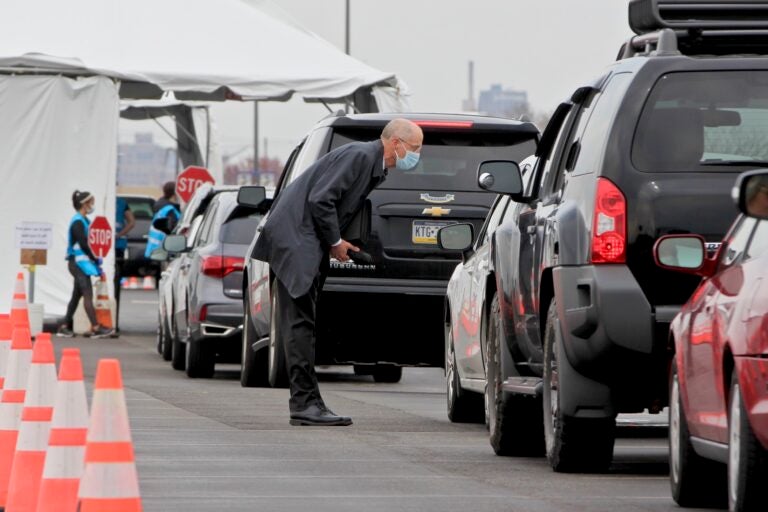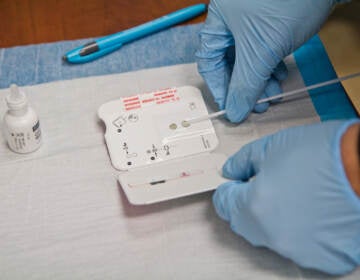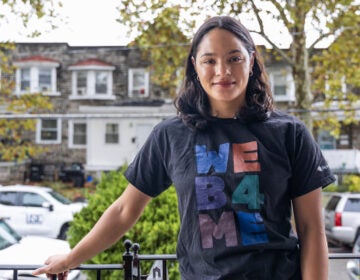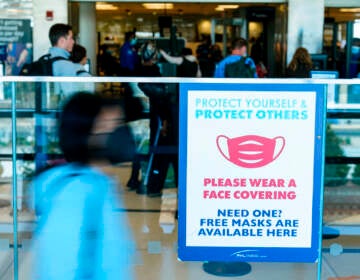How Philly’s Health Dept. adapted to deal with COVID-19
Now that the city has moved past the initial surge of the coronavirus pandemic, how has Philly's Health Dept. done at keeping the number of cases down?
Listen 14:33
Philadelphia Health Commissioner Thomas Farley walks among cars lined up for coronavirus testing at Citizens Bank Park, pausing to speak with the occupants of each car. (Emma Lee/WHYY)
Before the coronavirus pandemic, Philadelphia’s Health Department was probably best known as the agency shutting down unsanitary restaurants. Turns out, it was also training to respond to a major public health crisis.
Now that Philly has moved past the initial surge of COVID-19 patients, reporter Max Marin of WHYY’s Billy Penn breaks down how the department’s adapted to keep cases down.

Hear the whole story on The Why
Interview highlights
On the health department’s preparedness for the pandemic
There was a degree to which Philadelphia and the region were already planning for a mass-scale public health crisis like this. Actually just last year … they were participating in an event called “Frankenthrax,” which was a hypothetical bioterrorist attack, similar to what we had with anthrax in 2001. And they had to answer this question, which was how are we going to distribute these antibodies to potentially millions of people in the region in an effective, efficient way if there was an attack like this? And so they staged this sort of mock distribution center down at Citizens Bank Park in South Philly and orchestrated how all of these different agencies would work together and disperse this medication to the masses … Four or five months later, they found themselves down at Citizens Bank Park again, this time responding to a very real public health threat by opening the drive thru testing site at the stadiums.
On how the department adapted to respond to COVID-19
There was already, obviously, a wing that was designated with tracking the spread of this virus, and when they realized how quickly it was spreading within the community, they kind of had to reorient and reallocate a lot of resources to put behind what was going to be the frontline policy defense for the city against this virus.
So they changed everything substantially. They kind of restructured a 200-person leadership unit that would work together with all of these different city agencies and basically pulled people from all of the different specialties in the Health Department and kind of wrap them in this coronavirus crisis team package.
And over the last three months, that massive policy unit in the Health Department has just been evolving and growing and tackling some of the most complex issues, like obtaining protective gear … face masks, conducting autopsies on the dead, and going back to contact tracing efforts again, which are going to be crucial for moving forward into the next phase of this.
On the health department’s limited authority
This is probably the trickiest thing for anybody who wants to get super upset with the Health Department’s role in this crisis. I used that image of the health inspector shutting down your favorite restaurant over a mouse sitting in the kitchen. Well, that’s like the furthest extent of their power. Jim Garrow, the spokesperson for the Health Department, kind of openly put it to me this way: He said the Health Department has more regulatory control over the food that you eat than the health care that’s actually provided in the city.
Their fundamental job is to make recommendations. The Health Department doesn’t actually regulate any of the health care providers in the city. They don’t regulate nursing homes or privately run medical centers. All of those operations are regulated by the state or the federal government. If one particular center isn’t going to follow the Health Department’s recommendations, well the health department has repeatedly pointed to Harrisburg, to the state, said, “Well, they have to deal with it because they’re the ones that provide the license here.”
WHYY is your source for fact-based, in-depth journalism and information. As a nonprofit organization, we rely on financial support from readers like you. Please give today.






